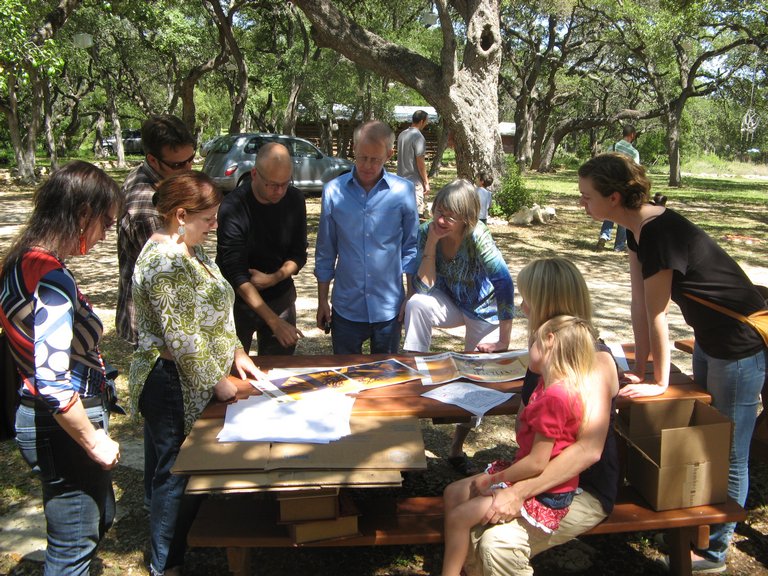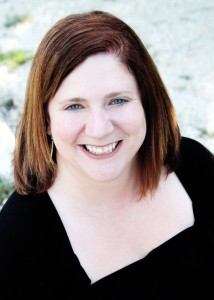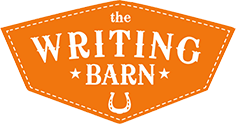Welcome to the first of a new blog series, Rejecting Rejection, Saying Yes to Yourself When the World Says No. Join us every other Monday, as writers at various career points share how they deal with the inevitable as a writer and creative: rejection. Today we welcome Writing Barn owner and author, Bethany Hegedus, to kick off the series and share how the blog series came to be.
After the Final No
by Bethany Hegedus
 Lying in bed the morning of New Year’s Eve, I let the 10+ years it has taken for my next book, Grandfather Gandhi to come to be, to wash over me. I sat again with the numerous rejections, the moves from one agent to another, the endless revisions, the years I let it sit, knowing I hadn’t found the right words yet. I recalled the editor letters that found the subject fascinating but wanted Arun Gandhi and me to turn it into a chapter book, one meant for older kids. A chapter book wasn’t our vision. A picture book was; one with powerful images that would be meant for all ages. I remembered the countless times I emailed Arun, reporting “not yet” and “we’re close” only to have the book rejected again. How could this be taking this long? Would I ever get it ‘right’?
Lying in bed the morning of New Year’s Eve, I let the 10+ years it has taken for my next book, Grandfather Gandhi to come to be, to wash over me. I sat again with the numerous rejections, the moves from one agent to another, the endless revisions, the years I let it sit, knowing I hadn’t found the right words yet. I recalled the editor letters that found the subject fascinating but wanted Arun Gandhi and me to turn it into a chapter book, one meant for older kids. A chapter book wasn’t our vision. A picture book was; one with powerful images that would be meant for all ages. I remembered the countless times I emailed Arun, reporting “not yet” and “we’re close” only to have the book rejected again. How could this be taking this long? Would I ever get it ‘right’?
Now, that the book is soon to release, I am not at all ashamed of the many twists and turns it took to publication. I am proud that the book, born out of my 9/11 experience as a fire searcher at One World Financial and Arun Gandhi’s time spent with his grandfather as a boy, took as long as it did to see the shelves.
And, it’s a good thing because the recent PW starred review opens with this line: “More than 10 years in the writing, this true story by Gandhi’s grandson and Hegedus (Truth with a Capital T) gives a personal window inside the peacemaker’s teachings.” There it was for the world to read, “more than 10 years in the writing.”
For 10+ years, I lived these lines from Brene Brown’s wonderful book, Daring Greatly: How the Courage to Be Vulnerable Transforms the Way We Live, Love, Parent and Lead: “Vulnerability sounds like truth and feels like courage. Truth and courage aren’t always comfortable, but they’re never weakness.” I had to keep reassuring myself that I wasn’t weak. That I wouldn’t crumble under the weight of my publishing hopes. I went on to publish two novels, but the Gandhi project still hadn’t found a home.
One weary winter, Black Friday in publishing reared its ugly head. This was the beginning of the end–jobs were being cut, bottom lines were being halved. This, as it just so happens, was the same week that the Gandhi book was going to auction. On Monday there were five or so offers. On Friday there were none. But there was an interested editor, Namrata Tripathi, whom had just moved from Disney/Hyperion to S&S/Antheneum. She wanted a revision. We met in person at the S&S offices, as I was leaving New York for Austin. She had on amazing high-heeled blue suede shoes, and I knocked a container of pens off her desk I was so nervous, but I left confident she was the right editor for the book though no official offer was on the table.

The behind-the-scenes route to publication continued. I wrote and revised for a year. Still no offer. And somewhere there was some famous illustrator who wanted to write and illustrate a Gandhi book (I have no clue who that famous illustrator was) and there was this internal race to see whose project would get contracted by S&S. I was tasked with one final revision; both the editor and my then agent, the wonderful Regina Brooks, had thrown up their editorial hands after my last revision where I executed exactly what was asked for but the text had fallen flat. I had failed myself. I had failed Arun. We all wanted the text to be stellar. It needed to be universal and yet specific. It needed to capture Gandhi as a world leader but also as a human being, as a man who cared about his grandson and a grandson who was having trouble living up to the peacemaker’s name. This revision was my last chance. I could feel the years of work, my desire to put something good into the world after my 9/11 experience, pressing on my shoulders. I couldn’t do it. I was going to blow it. Should I even try?
With those thoughts running through my head, the Universe gifted me an Austin snow day, which meant there was no snow, only the threat of snow, but that didn’t matter. What mattered was I didn’t have to go to work. I could give this difficult manuscript one last try.

It was cold outside and I turned my small apartments heater to 90+ degrees, trying to turn my beige carpet into the dusty roads of India. I spread out all my notes, my years of interviews with Arun, drafts and drafts of words that had thus far amounted to nothing but nos. Looking at it all, I was angry and ashamed. I let those feelings be. I didn’t try to push them aside this time. Arun, whose story we were telling, was angry and ashamed when he showed up outside Gandhi’s hut when he was 12. I had experienced anger and shame all my life. We all have. It didn’t feel good. I’d rather pretend my anger and shame didn’t exist but I couldn’t. Not anymore. Too much was on the line. So I stayed with my personal shame and feelings of failure and fear, and I stayed with Arun’s anger and injustice at the beatings he received as a boy, growing up in South Africa, and his desire to strike back. I felt him reach for a rock on the soccer field, a story that did happen, and I felt him run to his grandfather looking for solace and what he got was an understanding of anger and a reaction to injustice, that changed him, and can change us all.
The draft that very day, became the book that will soon hit the shelves. (After the contract, the illustrator search was on and it’s our good fortune it took as long as it did, as debut talent Evan Turk whose collage, watercolors, guache, and cut paper and fabrics turned the Gandhi book into a thing of mesmerizing beauty and feeling. When Arun and I first began working on the book in early 20o2, Turk was still 14! No wonder the universe had us wait.)
 As writers, we are truth tellers. And, as writers, the simple truth is we will never escape rejection. Theo Pauline Nester, in Writing is My Drink, says it better than I ever could. “There is no way to become a published writer without becoming a rejected writer. There is no way to succeed—whatever your vision of success might be—without going through the dark tunnel of failure, though how long that tunnel will be for you, I don’t know.”
As writers, we are truth tellers. And, as writers, the simple truth is we will never escape rejection. Theo Pauline Nester, in Writing is My Drink, says it better than I ever could. “There is no way to become a published writer without becoming a rejected writer. There is no way to succeed—whatever your vision of success might be—without going through the dark tunnel of failure, though how long that tunnel will be for you, I don’t know.”
Reading both Brown and Nester, and thinking about my own roller coaster ride with Grandfather Gandhi’s release, something congealed for me. What if we shown a light on the darkness of writer rejection and failure leading to success? What if we as writers talked to each other about how we had the courage to keep sending our work out into a world that constantly and pretty darn consistently tells us “No,” and sometimes when it is being polite says, “No, thank you.” What if we shared our publishing survival stories, like a cancer survivor who is not ashamed of the scars and wounds? Could we give hope to other writers, who may be on the verge of giving up? Could we touch the part of ourselves that was scared and vulnerable and still kept on? Could we share that? Could we laugh and rejoice, knowing another dark tunnel of rejection on the current project looms ahead?
At The Writing Barn, we’re all about process and craft. It’s where we writers live and as one of my writing mentors, Tim Wynne Jones said, “time worrying about the biz is useless, worry about the story.” But living in the process and pursuing our craft, we sometimes need emotional life preservers. That’s what I imagine our 2014 blog series, Rejecting Rejection: Saying Yes to Yourself When the World Says No to be—a lifeline. For twenty-six Mondays throughout 2014, stop by The Writing Barn blog and read the Rejecting Rejection essays, from writers at all stages of their careers. Read about option books being cancelled, what to do when the yeses turn to nos, read snippets of real rejection letters that writers writing for the series are brave enough to share. These essays will be both personal and truthful explorations into how, what and who holds the power of no. Is it the publishing industry? A powerful agent? Or is it ourselves?

Taped over my writing desk, for the 10+ years I wrote at a reception desk in financial firms all over Manhattan, was a line from a Wallace Stevens poem that became my beat-the-rejection-blues mantra, “After the final no there comes a yes/And on that yes the future world depends.” This line from The Well Dressed Man with the Beard reminded me that there would be a final no. That eventually, if I kept going, kept learning, kept writing, kept trying I would get a yes…and I did. You will too.

Bethany Hegedus’ books include Truth with a Capital T (Delacorte/Random House) and Between Us Baxters (WestSide Books). Both novels were named to the Bank Street Books Best Books in their respective publication years, with Between Us Baxters garnering a star for outstanding recognition. Forthcoming from Atheneum/Simon & Schuster is the picture book Grandfather Gandhi, co-authored with Arun Gandhi, grandson of the Mahatma, which PW in a starred review said, “Dynamic visuals and storytelling create a rousing family story that speaks to a broad audience.”
Bethany has served as the Hunger Mountain Young Adult & Children’s Editor since the prestigious journal went online in 2009 and once worked at The Writers’ League of Texas as Office Manager. A graduate of the Vermont College of Fine Arts MFA program in Writing for Children & Young Adults, Bethany is the Owner and Creative Director of The Writing Barn, a writing retreat, workshop and event space in Austin, Texas. She lives in a private home, with her husband and their dog, Toby, on the same 7.5 acres that The Writing Barn shares. A former educator, Bethany speaks and teaches across the country.
Would you like to write for Rejecting Rejection?
If you think you might like to write for Rejecting Rejection: Saying Yes to Yourself When the World Says No, please email info@thewritingbarn.com and we will share word count and other requirements. Please feel free to ask the contributors questions in the comments after each post and share your own stories of saying no to no.

Comments are closed.